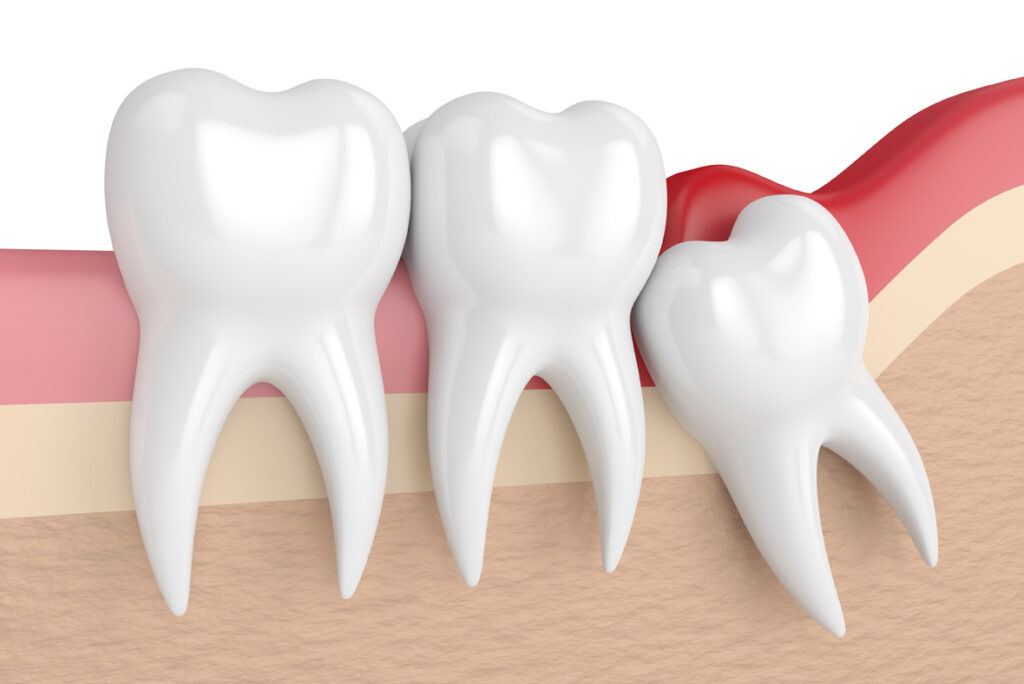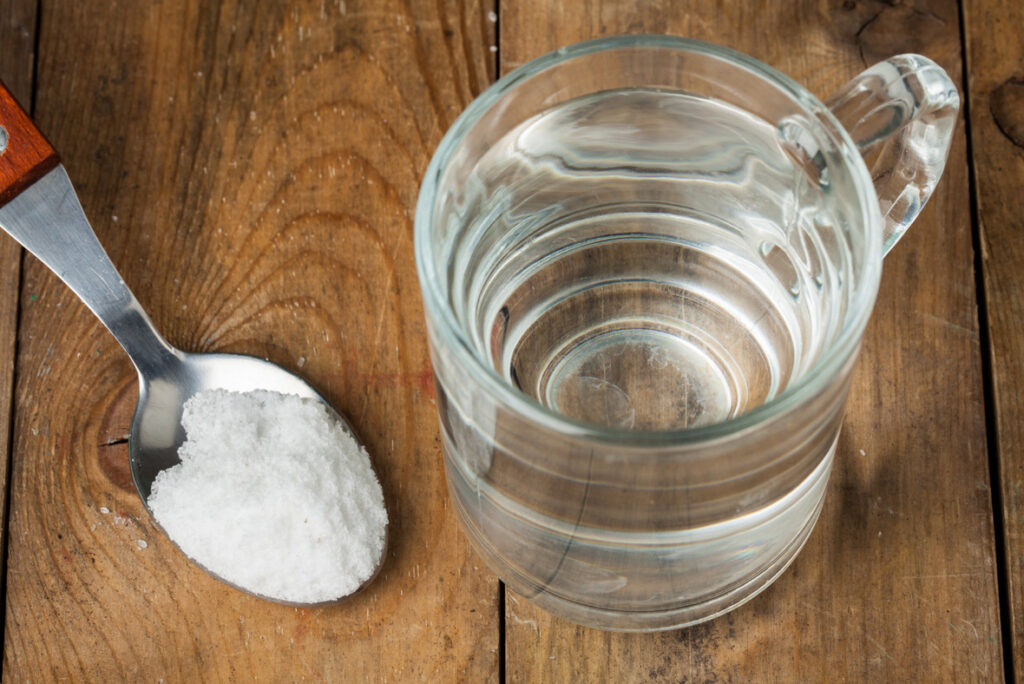Wisdom teeth, aka third molars, were present so that our ancestors could chew coarse rough food and hard produce such as nuts, roots, meats, and leaves, according to anthropologists. These days we don’t need to be gnarling on such foods and generally use knives and forks, but we still get wisdom teeth. So, do we need them? And when or should we remove them?

Wisdom teeth start developing around the age of 10 years but don’t erupt until usually between 17 – 25 years of age and can appear even later. Not everyone will have wisdom teeth, but generally, it is assumed two appear at the top and two in the lower jaw. Our jaws have shrunk over time, which means that they can struggle to come through and can become impacted. This means they have come through and are wedged at an awkward angle. Sometimes they’re fully impacted under the gum or partially, where a small piece of the tooth sticks through.
Impacted wisdom teeth can be left if there are no issues with them and there is no pain. However, sometimes bacteria can collect around the tooth and start causing problems such as soreness, decay, and infection. Often the area will become inflamed and sore to eat and touch. If this occurs, you may need to come and see us at Aesthetique Dental Care and we can advise you. It may be that you can relieve it by using a mouthwash or saltwater wash. You may need to book a hygienist appointment or it could be beneficial to have the tooth removed. This is a common procedure, and you will be in safe hands.

There are many reasons why you may experience wisdom tooth pain. These include:
We can extract wisdom teeth; we also can provide alternative treatments to wisdom tooth extraction when possible.

Pain relief – Over-the-counter medications such as paracetamol and ibuprofen can help alleviate the pain. If you’ve had your wisdom teeth out, ibuprofen helps with the inflammation while you recover.
Saltwater – you can try a saltwater solution. Make up a solution with half a teaspoon of salt and some warm water in about half a glass. Swish it around the affected area as best as you can and spit it out. You can do this 1-2 times per day. The saltwater helps by killing bacteria and reducing inflammation.
Clove oil – this natural remedy is useful, and you can buy the oil from a pharmacy and place it on a small piece of cotton wool over the area. You can also try placing a whole clove there, but it can be a bit tricky!
Bonjela teething gel – for a temporary fix, you can use Bonjela, which will slightly numb or dull the pain for a while.
Apply an ice pack – you could apply a face pack to your cheek or even wrap a teatowel around some frozen veg. Apply to the affected area for 20 minutes and then remove for the same amount of time and repeat as needed.
These are some temporary solutions to get you out of immediate pain but we would recommend you visit us and we can discuss the best form of treatment. This could include wisdom teeth removal.
If you have just undergone wisdom tooth removal, there may be some pain, which will typically last a few days. Directly after surgery, there will also be some minor bleeding from the wound. This can be controlled by biting on a piece of gauze over the operation area for about half an hour.
Some facial swelling and bruising are likely to occur, but this will lessen within a few days. You may not be able to open your mouth as wide as usual and your jaw may feel a bit stiff. Some people can experience a tingling in the lips and there may be some pain around the extracted area. However, before you leave our care, you will be given instructions on how to care for your mouth following the extraction. Painkillers, antibiotics, and an antiseptic mouthwash are usually prescribed after the surgery.
You will need to maintain good oral hygiene and stick to a soft diet for a few days. Don’t smoke during recovery as it can cause dry pockets and infections in the surgical site. Brush your teeth well but be cautious around the extraction area, particularly if you have some stitches. After you have recovered you will be out of long-term pain from your wisdom teeth and many of our patients feel a sense of relief that life and eating habits can once more go back to normal.
If you think your wisdom teeth are impacted or would like us to check on them or if you are in any kind of tooth pain, please don’t suffer in silence. Book an appointment with our friendly dentist in Leeds on 0113 245 8066.
Back to BlogAesthetique Dental Care 21 Wharf Street, The Calls Leeds West Yorkshire LS2 7EQ
We’re in the heart of Leeds - accessed by bus and train and have convenient on street parking.
